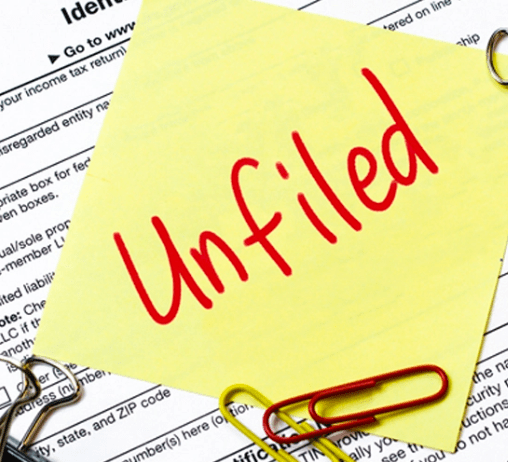Unfiled tax returns can lead to significant complications, but understanding the steps to resolve this issue can help you regain compliance and avoid severe penalties. This article will guide you through the process of addressing unfiled tax returns, including how to handle IRS substitute tax returns and your options for rectifying the situation. This article is sponsored by the tax professionals at the Law Office of Jason Carr. Contact the Law Office of Jason Carr.
Understanding Substitute for Return (SFR)
When you have multiple years of unfiled tax returns, the IRS may prepare a Substitute for Return (SFR) on your behalf. This is done using the information the IRS has on file, such as W-2s and 1099 forms. However, an SFR is not in your best interest—it is designed to benefit the government and often results in higher tax liabilities due to the absence of deductions and credits.
Options for Addressing an SFR:
- Petition the Tax Court: You have 90 days from receiving a statutory notice of deficiency to petition the tax court.
- File an Original Tax Return: Filing an original return is typically the best option. It can be processed within the same timeframe as a tax court petition and is more cost-effective.
Steps to Take After Receiving an IRS Assessment Letter
Receiving an IRS assessment letter indicates that the IRS proposes to assess taxes based on their information. You have 30 days from the date of the letter to address your tax liability. Here are your options:
- Submit a Completed Tax Return: Filing your original tax return can often result in a lower tax liability than the IRS’s SFR calculation.
- Consent to Assessment: You can agree with the IRS’s assessment, though this is usually not recommended.
- Provide a Statement: If you believe you are not required to file a tax return, you can provide a statement explaining your situation.
Dealing with a Statutory Notice of Deficiency
If you miss the 30-day deadline, the IRS will send a statutory notice of deficiency via certified mail. This notice indicates the IRS’s intention to proceed with their tax assessment, including penalties and interest. You have 90 days to:
- File an original tax return
- Consent to the assessment
- Provide a statement explaining why you are not required to file a return
Filing an Original Tax Return
When correcting an SFR, gather as much documentation as possible, including W-2s, 1099s, mortgage interest statements, and business income and expense records. If you can’t locate all your records, you can obtain wage and income transcripts from the IRS and recreate expense records using bank and credit card statements.
Recreating Records
If your records are lost, you can recreate them using alternative documentation:
- Wage and Income Transcripts: Call the IRS to obtain transcripts for missing W-2s and 1099s.
- Expense Summaries: Use bank statements, credit card statements, and receipts to recreate your expenses.
Conclusion
Addressing unfiled tax returns can be daunting, but taking proactive steps can help you avoid severe penalties and interest. By working with a tax professional at the Law Office of Jason Carr in Alabama, you can navigate the complexities of filing past due returns and resolving your tax liabilities. Contact the Law Office of Jason Carr or call 888-661-6583 for expert assistance.







